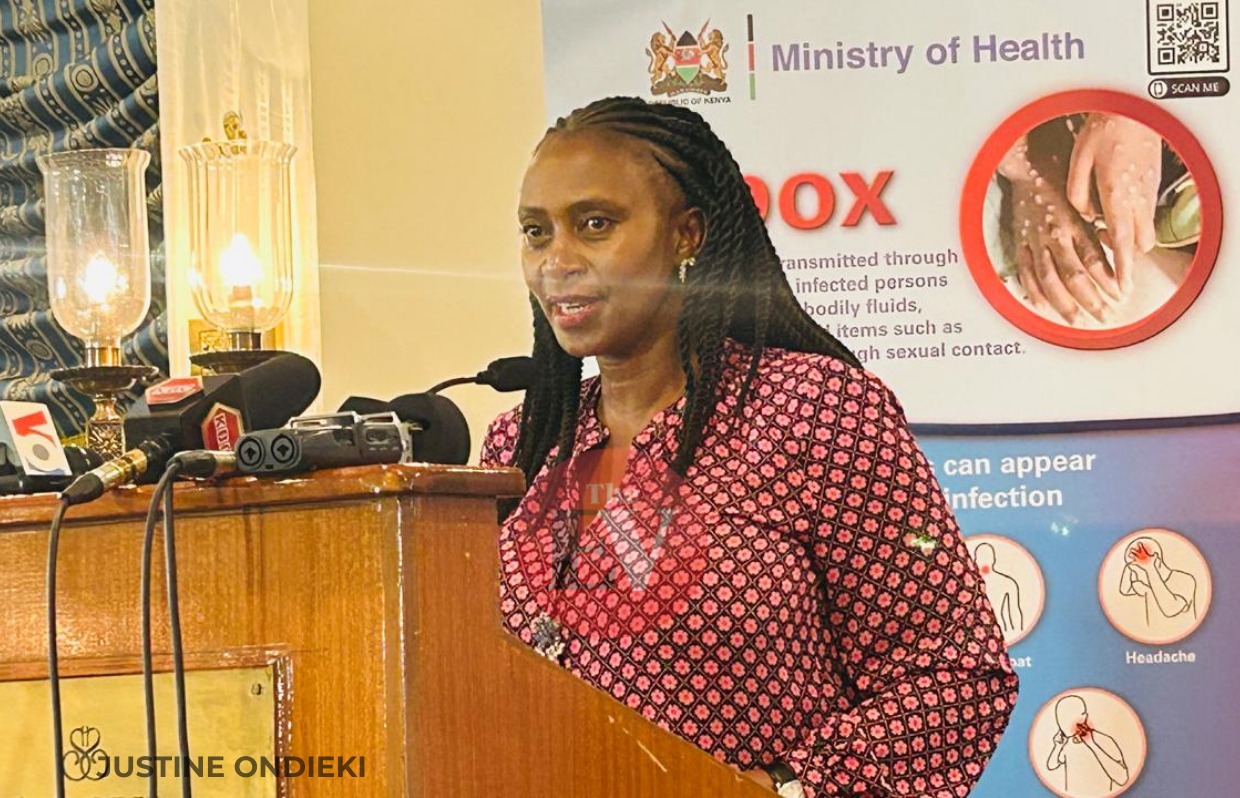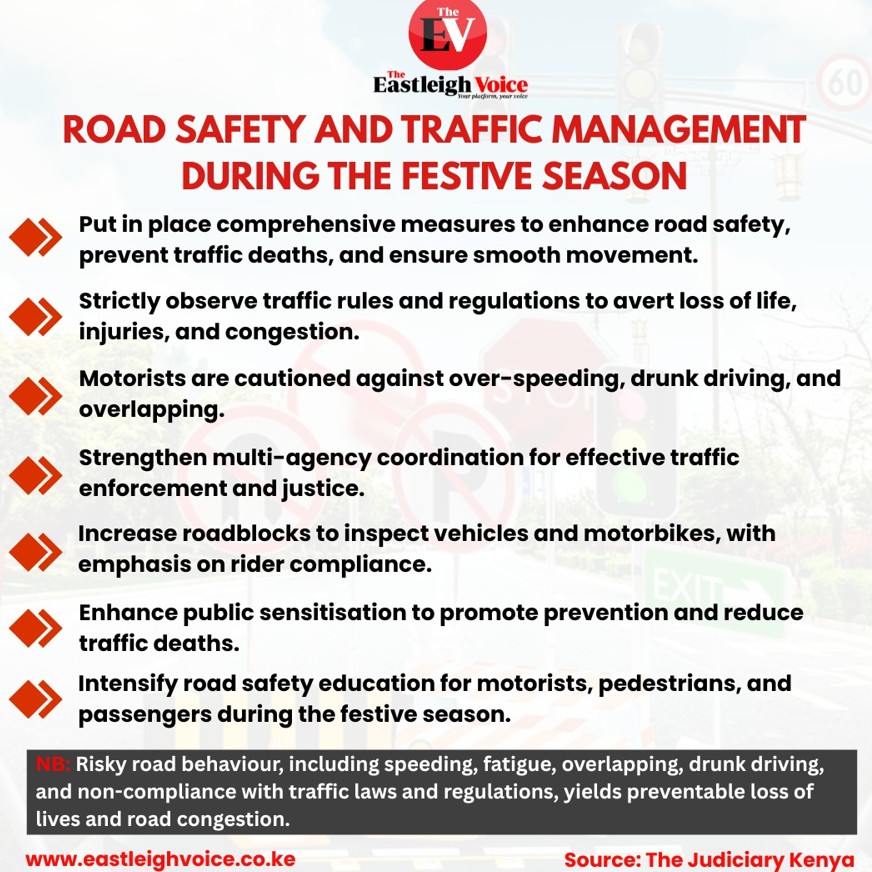Mpox vaccine not mandatory but a priority for high-risk groups, says Health ministry

The vaccination programme will be rolled out in three phases, informed by epidemiological data and the risk levels of specific groups.
Kenya is preparing to roll out the Mpox vaccine, but the Ministry of Health has stated that it will not be mandatory.
Instead, the campaign will focus on vulnerable populations as part of a targeted strategy to curb the spread of the virus.
More To Read
- Two new Mpox cases confirmed in Kenya, including patient who recently returned from South Sudan
- Mombasa County's mpox cases rise to 182 as health authorities activate emergency operations
- Kenya battles rising mpox infections as WHO lifts global emergency
- Health authorities launch 10-day mpox vaccination drive at Malaba border
- Long-distance drivers decry being forced to take Mpox vaccine, demand voluntary participation
- Mpox outbreak: What you need to know to stay safe
Addressing stakeholders during a media briefing on Wednesday, Rosalia Kalani, the National Surveillance Officer at the Ministry of Health, emphasised the importance of high-risk groups, including truck drivers and individuals with multiple sexual partners.
“This is not a mass vaccination campaign or the introduction of a new vaccine,” Kalani clarified. “It is a targeted outbreak response aimed at protecting those at the highest risk.”
The vaccination programme will be rolled out in three phases, informed by epidemiological data and the risk levels of specific groups.
The first phase will target contacts with confirmed Mpox cases who developed symptoms within the past two to four weeks, healthcare workers in areas with active cases, and individuals at high risk of severe disease due to direct physical contact with infected persons or exposure to their bodily fluids.
The second phase will extend protection to vulnerable individuals with chronic illnesses or weakened immunity who are at a heightened risk of severe complications if infected. Finally, the third phase, as proposed by the Strategic Advisory Group of Experts (SAGE), will include the broader population, contingent on vaccine availability.
Other at-risk groups include household members, family members, classmates, coworkers, and sexual partners of symptomatic individuals.
The initial rollout will focus on small groups within vulnerable communities. Kalani noted that data from surveillance will guide the expansion of the campaign into subsequent phases. She also highlighted Kenya’s position as a major transport hub in the region, which places truck drivers and their families at significant risk.
Truck drivers, one of the groups most affected by Mpox, have raised concerns about the stigma associated with the disease and the fear of losing their jobs if quarantined after exposure. “This will be a collaborative effort to address the outbreak effectively,” Kalani assured.
Kenya's Mpox cases
Kenya has already recorded Mpox cases across different age groups, with truck drivers being disproportionately affected. The country has reported one death so far—a 42-year-old truck driver from Bungoma County who had underlying health conditions.
Symptoms observed in Mpox patients include rashes, fever, sore throat, genital lesions, body weakness, joint pain, oral lesions, dry cough, headaches, swollen lymph nodes, muscle pain, vomiting, and abdominal pain. Those affected include truck drivers, businesspeople, female sex workers, housewives, children, students, and auditors, among others.
Men account for 40% of Mpox cases, while women account for 60%. Notably, some cases involve children and secondary school students. The primary mode of transmission in the country remains sexual intercourse.
The country has recorded 36 Mpox cases, with 32 recoveries, 2 cases under surveillance, and 1 fatality, spread across 12 counties. Nakuru leads with 10 cases.
The Ministry continues to encourage Kenyans to maintain preventive measures, such as personal hygiene, faithfulness, or abstinence, to reduce transmission. Mpox has primarily spread in Kenya through sexual contact.
Top Stories Today












































